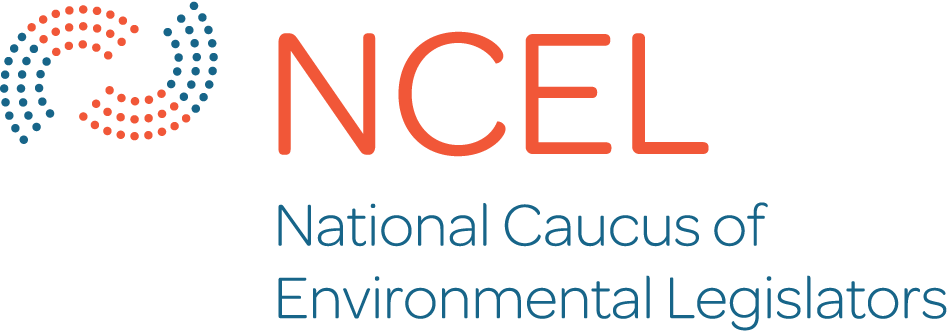
- Rachel Carson, catalyst for the modern environmental movement and author of Silent Spring
HB 1114
Washington
Reducing the Wasting of Food in Order to Fight Hunger and Reduce Environmental Impacts
By establishing state wasted food reduction goals and developing a state wasted food reduction strategy, it is the intent of the legislature to continue its national leadership in solid waste reduction efforts by: (a) Improving efficiencies in the food production and distribution system in order to reduce the cradle to grave greenhouse gas emissions associated with wasted food; (b) Fighting hunger by more efficiently diverting surplus food to feed hungry individuals and families in need; and (c) Supporting expansion of management facilities for inedible food waste to improve access and facility performance while reducing the volumes of food that flow through those facilities.
View Bill FileLD 289
Maine
An Act To Prohibit the Use of Certain Disposable Food Service Containers
Beginning January 1, 2020, this bill prohibits the sale or distribution in the State of disposable food service containers composed in whole or in part of polystyrene foam. The bill requires the Department of Environmental Protection to adopt rules to implement these statutory provisions.
View Bill FileHB 456
Delaware
Outdoor Lead Paint Ban
HB 456 is the first bill in the nation to ban the use of lead paints on outdoor structures such as bridges, playground equipment, parking lots, and utility poles. This bill, which passed unanimously in both the House and the Senate in August of 2018, is vital to safeguarding public health. Not only does it enact a general ban on the use of lead paints on outdoor structure after a certain date, but it also requires the Department of Natural Resources and Environmental Control to develop regulations to ultimately remove existing lead paint on structures.
View Bill FileHB 633
Louisiana
School Water Testing Pilot Program
Lead contamination in water is still a threat to children in many public schools across the United States. In an effort to address this issue, Representative Marcus Hunter authored Louisiana House Bill 633 signed by Governor John Bel Edwards in the 2018 Regular Session of the Louisiana State Legislature. HB 633, or Act 632, mandates the Louisiana Department of Health (LDH) to launch a pilot program for testing drinking water on an annual basis at some elementary schools. LDH has chosen 12 public schools with buildings that were constructed prior to 1986 or may otherwise be susceptible to drinking water contamination. Act 632 requires LDH to operate the pilot program in a manner which incurs no additional cost to the department and to report findings and outcomes of the pilot program to the legislative committees on health and welfare on or before December 31 annually. This Act is an important step toward eradicating lead contamination in public schools in Louisiana and a model for states across the country.
View Bill FileHB 2658
Washington
The Healthy Food Packaging Act
Washington House Bill 2658 bans the use of perfluoroalkyl and polyfluoroalkyl – commonly known as PFAS chemicals – in food packaging, contingent on the availability of healthy, viable alternatives. PFAS chemicals, which are used in food packaging for their waterproof and nonstick properties, are persistent, toxic chemicals. These chemicals can negatively affect child development, interfere with hormones, and are linked to cancer. However, this ban will only go into effect in 2022 if the state’s Department of Ecology is able to identify a safer alternative. HB 2658 orders the department to perform an alternatives assessment and publish its findings by 2020. The safer alternative will need to meet hazard standards, while still being economically and practicably viable. Once the ban is implemented, manufacturers will be required to attain a certificate of compliance to certify their packaging meets the new food packaging standards.
View Bill FileHB 1325
Maryland
Hydraulic Fracturing Prohibition
House Bill 1325 prohibits the act of hydraulic fracturing of a well for the exploration or production of oil or natural gas in the state of Maryland. The bill, sponsored by Delegate Fraser-Hidalgo, also succinctly redefines hydraulic fracturing as the stimulation treatment performed on oil and natural gas wells in low-permeability oil or natural gas reservoirs through which specially engineered fluids are pumped at high pressure and rate into the reservoir interval to be treated, causing fractures to open.
View Bill FileLD 454
Maine
An Act to Ensure Safe Drinking Water for Families in Maine
LD 454 increases testing and treatment of private, residential drinking water wells, which have been previously exempt from state and federal safe drinking water laws. Specifically, this bill: requires the Department of Health and Human Services to develop recommendations for the testing of a set of contaminants that will be periodically tested for in private wells; requires the Department to conduct educational outreach on the health effects of contaminants and why testing is important; requires the Maine Water Well Commission to also develop educational materials focused on the importance of testing for contaminants to give to residents when a residential private well is first drilled or deepened; and establishes a Private Well Safe Drinking Water Fund to support this outreach and increase testing rates. The Fund is financed through a (maximum $10) fee for testing performed by the Department’s lab and prioritizes funding for community-based programs that support underserved populations.
View Bill FileLD 182
Maine
An Act to Protect Firefighters by Establishing a Prohibition on the Sale and Distribution of New Upholstered Furniture Containing Certain Flame-retardant Chemicals
As of January 1, 2019, bans the sale and supply of newly upholstered household furniture containing certain toxic flame-retardant chemicals in the state of Maine. The listed chemicals include halogenated, phosphorus-based, nitrogen-based and nanoscale flame retardants, in addition to any other chemical or chemical compound-based retardant. Furniture containing even more than 0.1 percent of these harsh chemicals will be included in the ban. LD 182 only applies to indoor furniture of households and residential spaces, rather than furniture purchased for public use, and does not apply to used furniture.
View Bill FileSB 1547-B
OR
The Clean Electricity and Coal Transition Plan
Requires each electric company providing electricity to retail electricity consumers located in this state to eliminate coal-fired resources from electric company's electricity supply.
View Bill FileSO 6617B
NY
Community Risk and Resiliency Act
Relates to future climate risk and/or sea level rise projections and other weather-related data. The purpose of the bill is to ensure that certain state monies, facility-siting regulations and permits include consideration of the effects of climate risk and extreme-weather events.
View Bill FileSB 1019
CA
Upholstered Furniture: Flame Retardant Chemicals
Requires manufacturers of upholstered furniture to indicate, on a label currently required by law, whether or not the product contains added flame retardant chemicals.
View Bill FileH485
VT
Universal Recycling Law
The act requires solid waste facilities to separate recyclable materials from solid waste and requires waste transporters to offer to collect recyclable materials separate from solid waste. The recyclable materials required to be separated are: mandated recyclables, leaf and yard residuals, and food residuals. Mandated recyclable is defined as source-separated, traditional recyclable materials, such as cans, glass bottles, plastic containers, cardboard, and newspaper. Leaf and yard residuals are defined as source-separated, compostable untreated vegetative matter. Food residuals are defined as source-separated, compostable material derived from the processing or discarding of food. The requirements for separation of recyclable materials are phased in over several years. The act authorizes certain exemptions or variances for solid waste facilities and transporters. A solid waste facility that offers the collection of solid waste shall not charge a separate fee for the collection of mandated recyclables. Facilities may charge a commercial hauler for the collection of mandated recyclables. A transporter that offers the collection of solid waste shall not charge a separate line item fee for collection of mandated recyclables, but may charge a fee for each service call at a residential property.
View Bill FileHB 5510
CT
An Act Concerning Electric And Fuel Cell Electric Vehicles
To prepare electric distribution companies, municipalities, public and private merchants and electrical contractors for the presence and operation of electric, zero-emission and fuel cell vehicles in the state, to make changes regarding parking of hydrogen fuel vehicles under grade level and to make changes regarding labeling of vehicles that carry pressurized gas as fuel.
View Bill FileAB 1319
CA
Bisphenol A (BPA) In Baby Bottles and Cups
Prohibits the sale, manufacture or distribution of a bottle or cup that contains BPA if the item is intended for children three years of age or younger.
View Bill FileSB 518
CA
Building Standards: Graywater
This bill requires the California Building Standards Commission to adopt non-residential building standards for graywater systems for indoor and outdoor use.
View Bill FileSB 918
CA
Water Recycling
This bill requires the California Department of Public Health to establish standards for various types of water recycling, including indirect potable use, surface water augmentation and direct potable reuse.
View Bill FileHB 1677
Washington
No Child Left Inside
In 2007, Washington’s legislature passed HB 1677. This bill establishes an Outdoor Education and Recreation Program to both increase academic success and increase access to outdoor education for low income students. Specifically, it does so by creating an Outdoor Education and Recreation Grant Program, which is administered by the Washington State Parks and Recreation Commission and funded through the Outdoor Education and Recreation Program Account (also established in the bill). Both low income students as well as those who are in danger of failing academically and/or dropping out of school are given priority under this Grant Program. Private nonprofit organizations, formal school programs, non-formal after school programs, and community-based programs are among the many sorts of programs eligible to receive a grant. It should be noted that this bill was amended and reauthorized in 2015 to prolong funding and prioritize funding for those programs that engage with veterans.
View Bill FileAB 1108
CA
Children's Product Safety: Phthalates
Prohibits, commencing January 1, 2009, the manufacture, sale, or distribution in commerce of toys and child care articles, as defined, if those products contain specified types of phthalates in concentrations exceeding 0.1%.
View Bill FileAB 1007
CA
Air Quality: Alternative Fuels
This bill requires, not later than June 30, 2007, the State Energy Resources Conservation and Development Commission, in partnership with the state board, and in consultation with specified state agencies, to develop and adopt a state plan to increase the use of alternative fuels.
View Bill FileAB 1125
CA
Rechargeable Battery Recycling Act
This bill enacts the Rechargeable Battery Recycling Act of 2006, and requires retailers of rechargeable batteries, by July 1, 2006, to establish a system for accepting rechargeable batteries for reuse, recycling, or proper disposal.
View Bill FileAB 405
CA
Schools: Pesticide Use
This bill prohibits the use at a school of pesticides that do not have full registration or testing from state agencies.
View Bill FileSB 20
CA
Electronic Waste Recycling Act of 2003
This bill enacts the Electronic Waste Recycling Act of 2003 to provide for the convenient recycling of electronic devices in California. The devices covered by the measure include cathode ray tubes, cathode ray tube devices, flat panel screens, or other video display devices with a screen size that is greater than four inches in size measured diagonally and which, when discarded or disposed, would be a hazardous waste under regulations set by the Department of Toxic Substances Control. On and after July 1, 2004, the bill imposes an electronic waste recycling fee between $6 and $10 (depending on the size of the electronic device) upon the purchase of an electronic device from a retailer. This bill was double-referred to the Natural Resources Committee.
View Bill FileAB 2260
CA
Healthy Schools Act of 2000
This bill establishes the Healthy Schools Act of 2000, including a state-sponsored program for managing pests according to least toxic and effective practices. It notifies parents and workers about pesticide applications; convenes an interagency task force to evaluate environmental hazards at school sites; and establishes an ombudsman to provide information about environmental safety at schools.
View Bill FileSB 25
CA
Environmental Health Protection: Children
This bill requires the State Air Resources Board to carry out an ongoing review of ambient air quality and toxic air contaminants. Also creates a Children's Environmental Health Center within Cal EPA to, among other things, serve as the chief advisor to the Secretary of Cal EPA on matters within the agency relating to environmental health and environmental protection as it relates to children.
View Bill File


